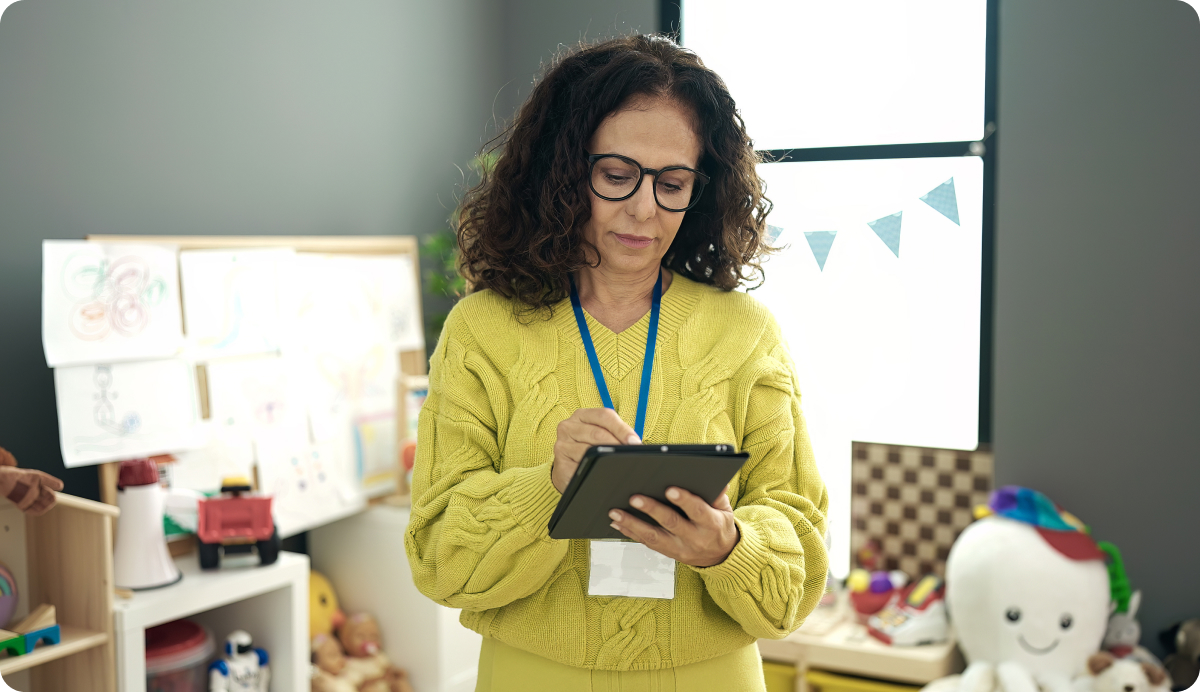In the ever-evolving landscape of education, the need for teachers to continue learning and adapting has never been more crucial. Research from the Council of Chief State School Officers (CCSSO) indicates that when teachers engage in PD focused on content knowledge and pedagogy, student achievement can improve by up to 21% in mathematics and 13% in other core areas. Professional development (PD) empowers educators, helping them refine their craft and improve student outcomes. To stay ahead in their field, teachers need support in honing essential skills. Below, we’ll explore five in-demand skills that will elevate teacher effectiveness and build lasting impact across your schools.
The Importance of Professional Development for Teachers
Teachers often find themselves juggling the needs of their students, evolving curriculum standards, and administrative demands. Without regular professional development for teachers, it becomes challenging to keep up with educational best practices. PD isn’t just about expanding your knowledge; it directly impacts student success. Teachers who invest in professional development tend to engage students more effectively, stay motivated, and grow their careers.
Why does professional development matter?
- Enhances teaching strategies by introducing innovative methods.
- Promotes student engagement and motivation through updated approaches.
- Encourages lifelong learning, fostering a love of learning in teachers and students alike.
- Helps teachers stay current with evolving educational standards, methods, and technologies.
- Contributes to teacher retention by offering a sense of accomplishment and career progression.
Professional development opportunities not only benefit teachers but also enhance student outcomes, as teachers become better equipped to meet the diverse needs of their classrooms.
Elements of Effective Professional Development
In their research on the elements of effective professional development and its impact on student outcomes, Darling-Hammond, Hyler, and Gardner outline several essential qualities of impactful teacher PD:
- Focus on Content: PD should target specific instructional strategies within subject areas. For instance, a focused session in English language arts on student metacognition can enable teachers to better tailor lesson plans.
- Encourage Active Learning: Adult learning theory highlights that adults benefit from hands-on learning and opportunities to solve practical problems relevant to their work, which fosters greater autonomy, mastery, and purpose.
- Promote Collaborative Learning: PD that includes peer observations, team-based data analysis, and co-teaching opportunities strengthens educators’ collaboration skills and broadens their teaching strategies.
- Model Effective Practices: Rather than a traditional lecture format, modeling best practices and including interactive, hands-on activities create a more engaging experience for adult learners.
- Provide Ongoing Coaching and Support: Instructional coaching—whether from experienced peers or external mentors—provides a non-evaluative space for feedback, reflection, and continuous improvement.
- Incorporate Feedback and Reflection: For optimal growth, PD should include meaningful, timely feedback with opportunities for reflection, allowing teachers to adapt and improve their instructional approaches.
- Extend Learning Over Time: Instead of one-off sessions, an extended PD structure with consistent support over time enhances retention and application of new skills.

5 Professional Development Skills and Opportunities
Beyond mastering core subjects, educators need to develop key skills to grow and thrive in their profession. These five skills are essential to professional development for modern educators.
1. Technological Proficiency & Digital Literacy
In today’s digital age, the ability to navigate technology is no longer optional. From virtual classrooms to using data analytics in lesson planning, teachers must be proficient with digital tools. By becoming tech-savvy, teachers can engage students more effectively and personalize learning experiences.
Platforms like GoReact facilitate video-based observations and peer feedback, helping teachers enhance their digital proficiency while allowing coaching, modeling, and collaboration. Teachers can leverage these tools to continuously improve their skills.
2. Classroom Management and Organization
Effective classroom management is essential for maintaining a productive learning environment. Teachers need strategies for organizing their classrooms, managing diverse learning needs, and creating a space conducive to engagement and discipline.
Professional development opportunities often include workshops or mentorships focused on classroom organization and behavior management techniques. These skills help educators lead classrooms where learning flourishes.
3. Communication
Strong communication skills are vital for any teacher. Whether communicating with students, parents, or colleagues, educators must convey ideas clearly and empathetically. Effective communication helps build relationships and fosters an inclusive learning environment where every student feels heard and supported.
Feedback tools in GoReact can be a valuable asset in improving communication skills. By using video feedback from peers or mentors, teachers can refine their communication techniques and gain insights into areas of improvement.
4. Critical Thinking
Educators are often required to make decisions in the moment, evaluate learning materials, and adapt to unexpected challenges. Developing critical thinking skills enables teachers to assess situations quickly, identify problems, and implement effective solutions.
Critical thinking also applies to helping students. Teachers who engage in PD that strengthens their critical thinking abilities can better guide students in developing these skills, essential for both academic success and future career readiness.
5. Assessment and Feedback Innovation
Teachers need to be skilled in assessing student performance and providing meaningful feedback that drives improvement. Traditional assessments may not always offer the full picture of a student’s abilities, and innovative feedback mechanisms are needed to ensure students are on the right path.
Engaging in best-practice sharing and collaboration around assessment techniques also helps educators refine their strategies, ensuring feedback is impactful, timely, and aligned with learning goals. This collaborative approach to assessment creates a richer learning experience and strengthens instructional methods across the board.

How to Support Ongoing Professional Development
Fostering an ecosystem that encourages continuous professional growth in education is essential for long-term success. Schools and educational institutions can create environments where teacher PD is not only encouraged but celebrated.
Create a culture of continuous PD
Schools can build a professional development culture by encouraging collaboration, peer coaching, and mentorship programs. When teachers work together and support each other’s growth, professional development becomes an ongoing, shared experience.
Provide institutional support
Educational leaders play a critical role in supporting teacher PD. By offering incentives, such as dedicated time for development or recognition for accomplishments, institutions can motivate teachers to actively pursue their growth.
Include peer support and collaboration
Mentorship programs and collaborative learning opportunities provide a network of support that encourages ongoing development. Teachers who engage with peers to discuss best practices and share feedback are more likely to continue improving their skills.
Uses technology for feedback and collaboration
Platforms like GoReact can become central to this professional development ecosystem. With tools that facilitate video-based observations, peer feedback, and reflective learning, GoReact offers educators a way to continually assess their skills and collaborate with others. These features make GoReact a powerful asset in helping teachers grow their competencies and improve student outcomes.

Investing in these five skills is crucial for professional development for modern educators striving for excellence in teaching. Continuous learning and improvement in areas like technology, classroom management, communication, critical thinking, and feedback innovation are not only beneficial for teachers but also essential for the success of their students. Schools, too, must create environments that support professional development for teachers through institutional and peer collaboration, ensuring that every teacher has the resources and opportunities to thrive.
Explore our video series on elevating the PD experience with video feedback—featuring classroom observation, modeling, self-reflection, and collaborative growth.










